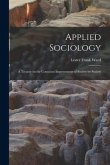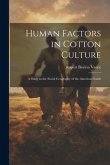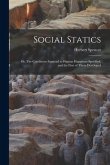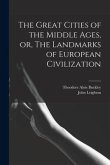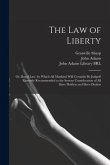"Homo-culture: or, The improvement of offspring through wiser generation" by Martin Luther Holbrook delves into the early 20th-century study of eugenics. Examining heredity and its perceived impact on social improvement, the book explores theories surrounding child development and effective parenting through the lens of genetics. A significant work in the history of social sciences, "Homo-culture" reflects the era's focus on improving offspring and society through what were then considered scientific methods. This thought-provoking text provides a window into historical perspectives on sociology, social work, and the family, offering insights into the evolution of ideas surrounding human potential and the role of heredity. A meticulously prepared print republication, this edition makes Holbrook's work accessible to those interested in the historical discourse surrounding eugenics. This work has been selected by scholars as being culturally important, and is part of the knowledge base of civilization as we know it. This work is in the public domain in the United States of America, and possibly other nations. Within the United States, you may freely copy and distribute this work, as no entity (individual or corporate) has a copyright on the body of the work. Scholars believe, and we concur, that this work is important enough to be preserved, reproduced, and made generally available to the public. We appreciate your support of the preservation process, and thank you for being an important part of keeping this knowledge alive and relevant.
Bitte wählen Sie Ihr Anliegen aus.
Rechnungen
Retourenschein anfordern
Bestellstatus
Storno



![Preliminary Report to the Ottawa Improvement Commission [microform] Preliminary Report to the Ottawa Improvement Commission [microform]](https://bilder.buecher.de/produkte/65/65601/65601669m.jpg)
